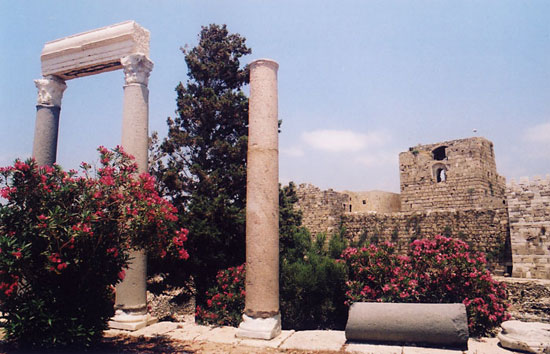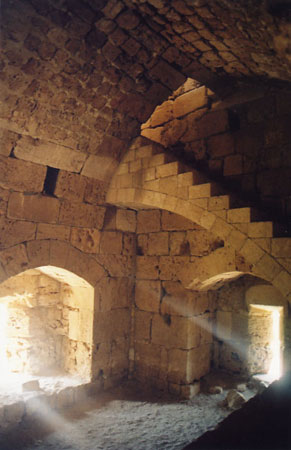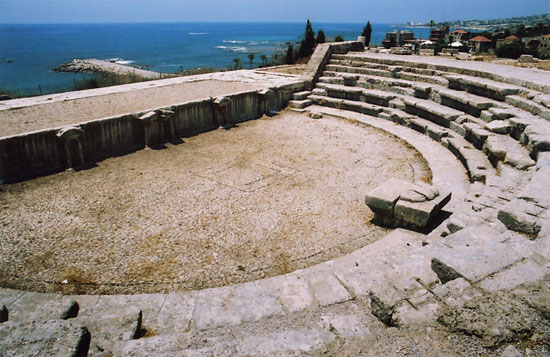Byblos (Jbail)
Byblos, or Jbail in Arabic, is supposedly the oldest settlement in the world, and has been continuously inhabited since Neolithic times. A major city of the Phoenicians, the city fell into the hands of the Romans, Arabs, Crusaders, Ottomans, and according to Tony, fifty years ago a family was still found living among the ruins.
I would love to detail the journey from Beirut, but I can't explain it... it involved my usual technique of hopping onto various buses, hoping I was going the right direction, then pleading with the driver to take me there without really understanding what the route of my bus actually was. I was dropped off somewhere in town, and someone pointed toward the ruins.
This time, the stern clerk asked to see my student ID, but still gave me the supposed non-existent discount: 6000LL regular price, 1500LL for me.

 |
The nearby old town contains some schools which are still in use and a market area which has the very "restored" look, perfect cobbled streets and small shops of unnecessary items, which charm me nonetheless. The most popular item appears to be fossils. Fossils? There's also a small fossil museum but my stomach was growling by the time I reached it, and I couldn't muster the interest.
The most beautiful thing about the ruins was the coastal setting. Unlike the desert ruins I'd been seeing, this site was infused with green and dotted with lovely flowers. There are small fishing boats in the harbor, couples strolling along the promenade, and pricey but lovely elevated restaurants with good views.

Before I headed back to Beirut (using a muddled combination of two buses and a furniture delivery man) I stopped for my daily allotment of ice cream. As I was leaving, the owner of the ice cream parlor asked me to stay.
"Don't leave! I love you," he said.
"What?" I asked.
"I mean, I love Americans," he said.
"What?" I asked.